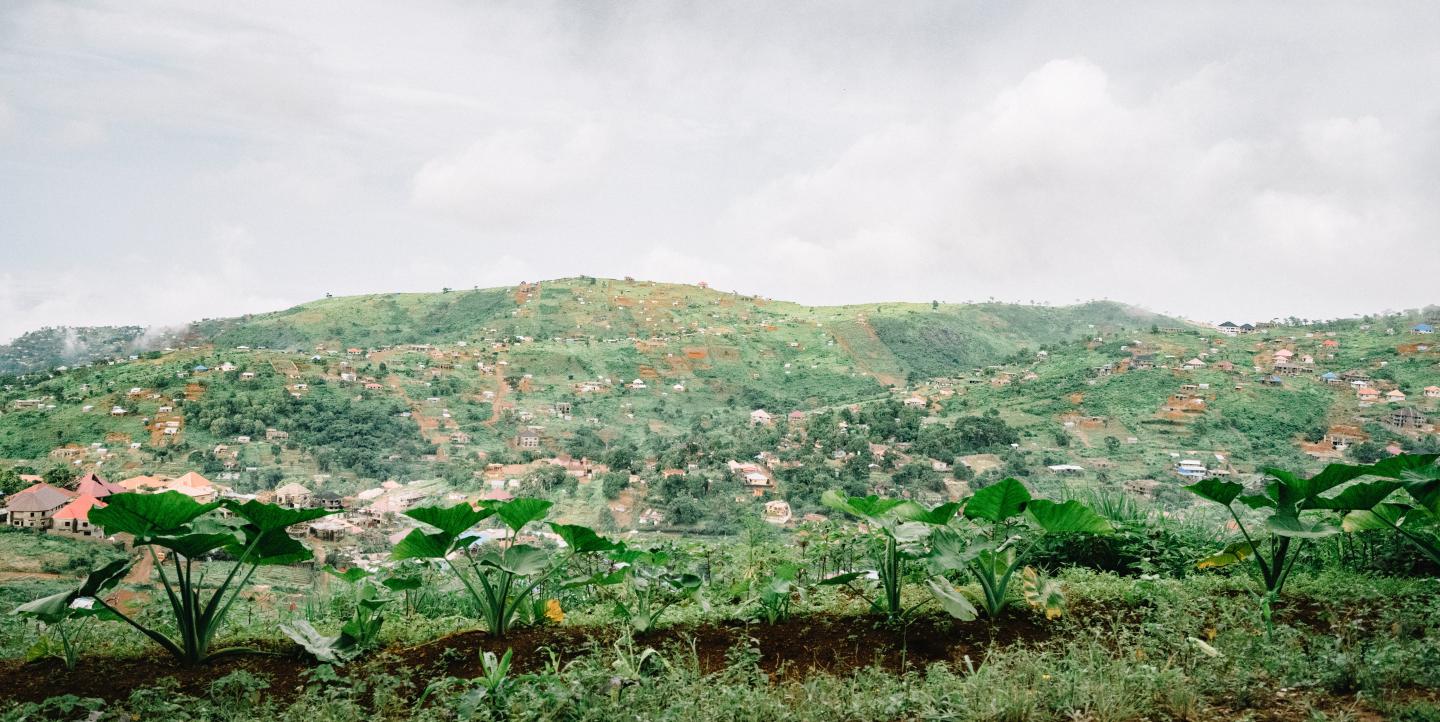Amid the spread of disinformation-fueled “opinion media” in democratic societies, and government censorship and propaganda in autocracies, press freedom is declining globally.
Sierra Leone, however, is moving in the other direction. The West African nation rose 29 places in Reporters Without Borders (RSF)’s 2022 press freedom rankings, to 46th globally — comparable to Uruguay, South Korea and the U.S.
The country’s rapid rise against the current global trends comes in the aftermath of a repeal of its 1965 Criminal and Seditious Libel Law, which had been used to repress journalists critical of the government.
“A year on from signing the repeal, 130 registered newspapers, 165 registered radio stations and 42 registered television stations continue to operate freely,” said President Dr. Julius Maada Bio at a press conference last year.
Today, “there is no journalist in prison for the practice of journalism,” he said.
A rare bright spot in a time of declining press freedom, Sierra Leone offers a potential model for media, civil society and reform-minded governments in other countries to improve the state of independent media.
Repealing an anti-press law
In 1991, Sierra Leone descended into a brutal civil war, as the Liberia-based Revolutionary Action Front attempted to overthrow the government. The war lasted 11 years, reaching a momentary resolution with the signing of a peace agreement— the Lomé Peace Accords — in 1999. However, hostilities continued, and the British military intervened in 2000, spending two tumultuous years securing the government from rising rebel groups.
Formal elections were finally held in 2002, after which newly elected President Ahmad Tejan Kabbah declared an official end to the civil war. Following the conflict, a truth and reconciliation commission was established to address the causes and effects of the war and create a plan of action for the future.
Among the recommendations: repealing the 1965 libel law, which had contributed to a culture of corruption and fear.
“The nature of the law was so terrible that the publisher could get arrested, the editor could get arrested, the reporter and sometimes even the boss reading it,” said Mohammad Swaray, Sierra Leone’s Minister of Telecommunication, who guided the repeal.
Despite the recommendation, the libel law wasn’t repealed at the time, and those in power continued to use it to harass and imprison journalists. The 2018 election of President Bio, previously a head of state in the civil-war era military government, presented the first administration with a policy platform of repealing the law.
“Apart from the Reconciliation Commission, successive National Human Rights Commission reports have noted that [the libel law] was not the model of good governance, press freedom and democracy,” said Swaray. “Number one was to bring our laws in line with other international treaties that we were a signatory to. We wanted to be good competitors. We want to be a compliant nation.” He noted, too, that while the libel law was in place people were arrested and businesses closed down. “It’s not the most enabling environment to attract investment. We argued that as well [to parliament],” he said.
On October 28, 2020, after two years of lobbying against the law in an effort to attract bipartisan support, the Bio administration repealed it, ending the practice of criminalizing journalism in the country. Seizing on the political will of prominent officials to repeal the law was instrumental. “Even with the best of intentions, if you don't have political will at the highest levels, you can never get to where we have gotten and where we desire to get to,” said Swaray.
Building a healthy media
While the repeal of the law laid the foundations for new independent media in Sierra Leone, decades of repression had hollowed out existing media in the country. Journalists lacked the money and resources to properly report, creating an environment ripe for brown envelope journalism, as the exchange of money for positive coverage is called in Africa.
“[The media] needs a lot of financial support. The economy in Sierra Leone is really tiny. It has a very low GDP. There is an advertising sector that is really small and it only goes to a handful of people. Most media are not viable,” said Maha Taki, senior advisor of media development at BBC Media Action.
In April, more than 250 government officials, independent media and international media support groups — supported by BBC Media Action’s PRIMED program — came together for a conference in the capital city of Freetown to plan for how to revitalize Sierra Leone’s media ecosystem. They produced a report suggesting changes for the government and the Independent Media Commission of Sierra Leone (IMC). The recommendations included a national fund for public interest media, more transparent advertisements, and government funding for media development.
The recommendations in the national action plan have accepted by all media stakeholders — including the Ministry of Information and Communication — and now awaits submission to cabinet for approval, according to BBC Media Action.
“All the things that we recommend need to be done for the media sector to be healthy. I think if at least some of these are followed in the next few years that's already a huge improvement in the media sector in Sierra Leone,” said Taki.
Lessons learned
Despite Sierra Leone’s success in building a free and independent media, challenges persist. Many journalists are still underpaid, and although threats to reporters aren’t as systemic as before the libel law repeal, they are not absent, as evidenced in the recent attempted murder of a TV journalist in April.
“The situation of journalists themselves is not standard in terms of pay. Many journalists are just trying to struggle to be paid in accordance with the standards and security of journalists,” said Sadibou Marong, RSF's West Africa director.
And while journalists are no longer jailed, some still face harassment. “It's an obligation for the state to ensure journalists can work freely and without harassment from security forces,” Marong said.
Nevertheless, the example of Sierra Leone presents a potential model for media activists and government reformists globally to improve press freedom in their respective contexts. One of the keys to replicating Sierra Leone’s success, said Taki, is providing international support to back political will to reform. “We always talk about how the stars were aligned when it comes to our work in Sierra Leone, because it really is a combination of the political will, that opening.”
“I think it's really replicable,” she continued. “We are talking to our country teams in West Africa and saying, do you see that there's any kind of opening, even if it's not to the extent of Sierra Leone? You've got to capitalize on that and help them to try and push for those improvements as much as possible. We have to work with what we've got, basically, and then work slowly.”
While political will and support from international actors has improved Sierra Leone’s press freedom, the future is far from certain. The outcome of upcoming presidential elections this year may close the brief window of political will, causing commitments to a free press to falter.
Having a free press is in the ultimate interest not only of the media, but of democratic governments as well, explained Swaray. “The press and governments are in a marriage of convenience by the very nature of our jobs. Our paths will always cross,” he said. “Without the press, there might be dictatorship and tyranny. Without governments, there'll be atrophy, so we have to work together.”
Photo by Social Income on Unsplash.
This article was updated on July 11th, 2022.


